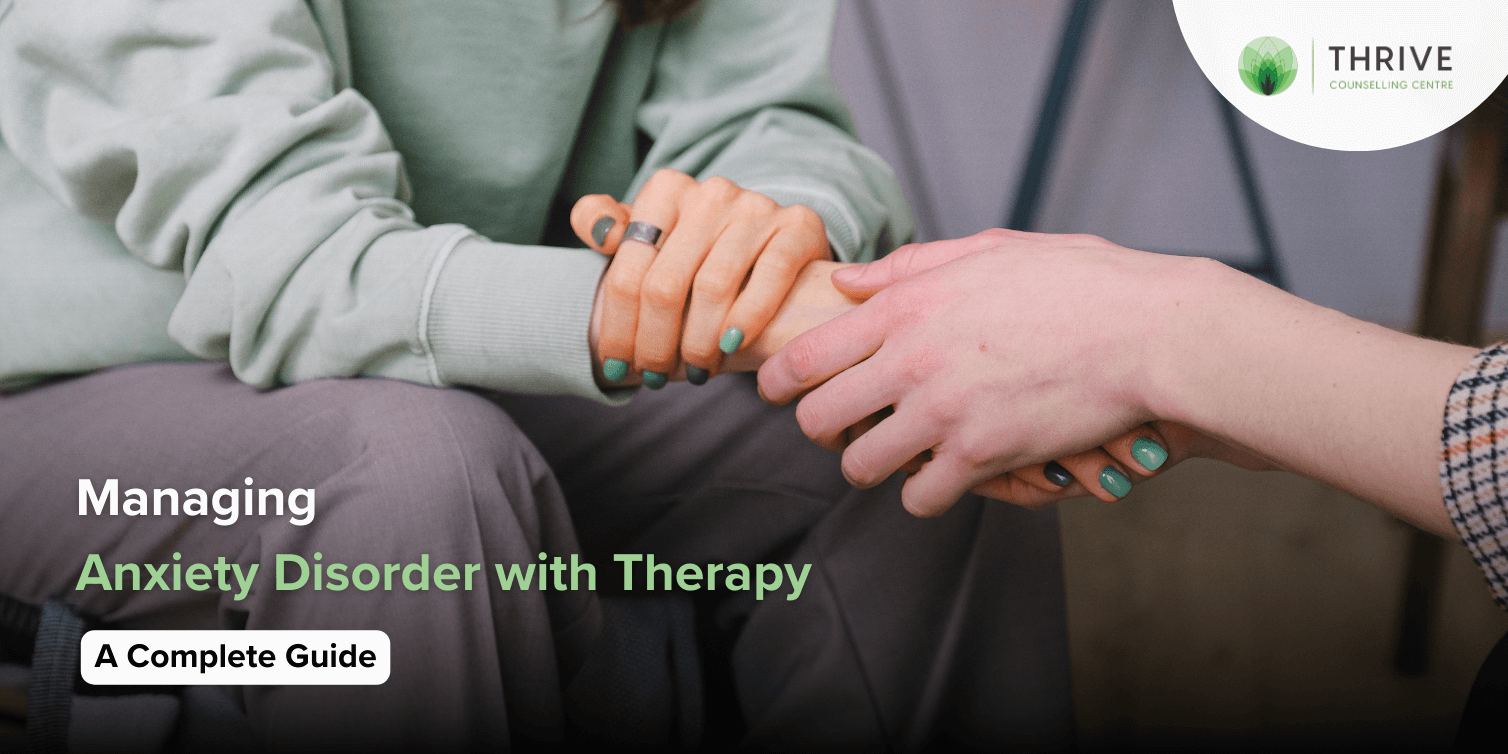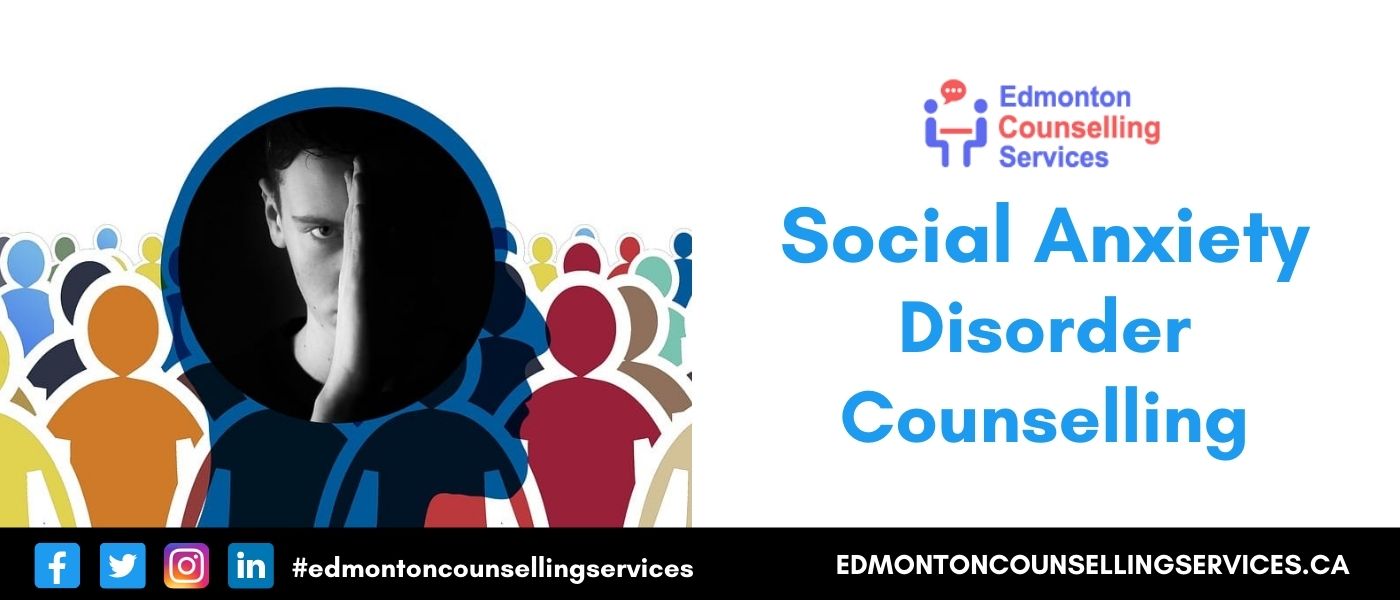Exploring Different Strategies in Counselling for Anxiousness Problem for Lasting Change
When dealing with stress and anxiety conditions, it's essential to discover a selection of therapy techniques. Each technique offers special insights and tools to help you manage your signs efficiently. You might locate that incorporating methods can produce the most effective outcomes. However, recognizing the nuances of these strategies is key to fostering long-term change. Suppose the right combination could launch a brand-new degree of emotional wellness for you?
Understanding Anxiety Problems: A Short Overview
Stress and anxiety disorders, which influence millions of people worldwide, can substantially influence day-to-day live. You could experience frustrating sensations of anxiety or stress that appear unmanageable. These sensations can lead to physical symptoms like a racing heart, sweating, and even dizziness. Typical sorts of stress and anxiety disorders include generalized anxiety condition, panic condition, and social anxiety condition. Each has one-of-a-kind indications, however they all share a propensity to interrupt your regular and relationships.Understanding the root causes of your anxiousness is essential. It could originate from genes, brain chemistry, or life experiences. Identifying your triggers can aid you manage your responses much better. It is very important to bear in mind that you're not alone in this struggle. Lots of people face similar challenges, and looking for help is a solid step toward sensation better. By discovering concerning anxiety disorders, you're already on the course to understanding and managing your condition better.
Cognitive-Behavioral Therapy: Testing Adverse Idea Patterns

Identifying Unfavorable Thought Triggers
Recognizing the specific triggers behind your unfavorable thoughts can be vital in handling stress and anxiety when you experience moments of distress. Begin by taking notice of scenarios that prompt sensations of worry or anxiety. Is it a congested area, an upcoming target date, or a discussion with particular individuals? Write down these circumstances in a journal. This will help you identify patterns in your reasoning. Notice physical experiences that accompany your adverse ideas, like a racing heart or rigidity in your upper body. By determining these triggers, you gain insight into what's sustaining your anxiousness. Understanding these links is the very first step in challenging those ideas and eventually restoring control over your psychological reactions.

Replacing Ideas With Positives
Testing negative idea patterns is a vital action in changing your attitude and lowering anxiety. You might usually locate on your own caught in cycles of insecurity or catastrophic reasoning. Rather than letting these thoughts determine your feelings, method replacing them with practical alternatives or favorable affirmations. When you think, "I can't manage this," shift it to, "I can manage obstacles one action at a time." This simple adjustment can significantly impact your psychological state. Routinely recognizing and countering these unfavorable ideas helps develop a much healthier internal dialogue. Remember, it requires time and effort, yet consistently exercising this technique can cause long lasting change, empowering you to deal with anxiousness with renewed confidence and resilience
Building Coping Approaches Together
Changing adverse thoughts is only the start of taking care of anxiousness properly. To develop long lasting change, you require to build coping approaches that empower you. Cognitive-Behavioral Treatment (CBT) aids you determine and test those purposeless idea patterns. With each other, you and your therapist can discover just how these ideas impact your feelings and behaviors.Start by creating functional techniques, like journaling or mindfulness workouts, that allow you to challenge anxiousness head-on. When you face your worries progressively, you'll learn to respond differently.

Mindfulness and Acceptance-Based Approaches: Growing Present-Moment Understanding
As you navigate the complexities of stress and anxiety, integrating mindfulness and acceptance-based methods can substantially boost your ability to cultivate present-moment recognition. By focusing on the present moment, you'll find that you can observe your ideas and sensations without judgment. This practice assists you recognize your anxiety without really feeling overwhelmed by it.Engaging in mindfulness workouts, such as deep breathing, body scans, or assisted meditations, permits you to ground yourself in your current experience. Acceptance-based strategies motivate you to accept your feelings instead of fight against them. They lose their power over you.Incorporating these practices into your daily regimen can change just how you respond to stress and anxiety when you approve your sensations. You'll create resilience and find out to navigate stressful circumstances with greater convenience. Ultimately, cultivating present-moment awareness lays the structure for long lasting adjustment, equipping you to lead a much more fulfilling life.
Exposure Therapy: Challenging Worries Slowly
Exposure therapy assists you face your anxieties in a gradual way, making it less frustrating. You'll find out techniques to deal with anxiety-provoking scenarios action by action, while additionally building coping methods to manage your responses. This method empowers you to take control and lower anxiousness over time.
Gradual Exposure Methods
When facing anxiety, progressively facing your concerns can be an effective method to restore control. This technique, understood as progressive exposure, entails slowly revealing on your own to the situations or items that trigger your anxiety. Beginning with less daunting circumstances and progressively work your way approximately even more tough ones. For circumstances, if you hesitate of public talking, you may start by talking in front of a mirror, after that progress to sharing ideas with a friend, and ultimately address a tiny group. Each step assists desensitize you to the worry, developing your confidence with time. Keep in mind, it's vital to rate yourself and commemorate small victories as you move with this process, reinforcing your ability to handle stress and anxiety successfully.
Structure Coping Methods
Structure effective coping methods is important for managing stress and anxiety, particularly as you confront your fears gradually. One effective approach is exposure therapy, where you website start by facing your concerns in a controlled way. Begin with less intimidating scenarios and gradually work your means approximately more tough circumstances. This gradual direct exposure helps desensitize you to anxiety activates, making them much less overwhelming.Incorporate leisure techniques, such as deep breathing or mindfulness, to soothe your mind throughout direct exposure. Track your progress, celebrating little victories along the means to boost your confidence. Remember, it's alright to take your time; the goal isn't excellence however constant renovation. By building these methods, you'll empower yourself to navigate anxiousness and embrace life a lot more totally.
Psychodynamic Therapy: Discovering Origin of Anxiety
Psychodynamic therapy checks out the unconscious mind, revealing the origin of your stress and anxiety - Counseling services for anxiety. By analyzing your thoughts, sensations, and previous experiences, this method assists you uncover underlying problems and unsolved issues that might add to your present stress and anxiety. You'll deal with a therapist to investigate childhood experiences, connections, and psychological patterns that shape your responses today.As you get understanding into these much deeper layers of your psyche, you'll begin to identify just how past events affect your present habits. This understanding can lead to catharsis, allowing you to refine feelings you could have suppressed.Through the therapeutic connection, you can also recognize defense reaction that might have developed over time, using a clearer course to transform. Eventually, psychodynamic therapy outfits you with the tools to address your stress and anxiety at its core, advertising lasting transformation in your emotional health
All Natural and integrative Strategies: Combining Methods for Greater Effectiveness
Integrating different restorative techniques can enhance your trip toward handling stress and anxiety extra efficiently. By integrating elements from cognitive-behavioral treatment, mindfulness methods, and all natural methods, you can produce a customized approach that resolves your one-of-a-kind requirements. For instance, you might use cognitive-behavioral strategies to test adverse thought patterns while integrating mindfulness exercises to ground yourself in the existing moment.Additionally, discovering alternative techniques such as yoga exercise or reflection can promote relaxation and minimize stress and anxiety signs and symptoms. This mix allows you to establish higher self-awareness and resilience.Experimenting with these diverse methods can assist you discover what resonates most with you. Bear in mind, it's regarding finding a synergy that functions, as opposed to staying with a solitary technique. This integrative approach not just supplies immediate alleviation however also fosters long-lasting skills for managing anxiousness, encouraging you to redeem control over your life.
The Role of Support Equipments: Building Durability Via Connection
While it might seem that handling stress and anxiety is a singular trip, having a solid support system can play an essential function in your resilience. Surrounding on your own with empathetic pals, family members, or support teams produces a risk-free room where you can freely share your sensations and experiences. You remind on your own that you're not alone in this struggle.These relationships use encouragement and can supply sensible coping methods that have functioned for others when you attach with others. It's also an opportunity to acquire point of view; pals can help you see circumstances differently, decreasing sensations of isolation.Moreover, emotional assistance promotes a feeling of belonging, which can considerably alleviate stress and anxiety signs and symptoms. By leaning on your support system, you can construct durability and tackle challenges better. Keep in mind, getting to out for help is an indicator of strength, and it can make all the difference in your journey toward taking care of stress and anxiety.
Regularly Asked Inquiries
What Are the Common Symptoms of Anxiousness Problems?
You may experience restlessness, fatigue, problem focusing, irritability, muscle mass stress, and sleep disruptions. Physical signs can include quick heart beat, sweating, and trembling. Acknowledging these signs early can assist you seek proper assistance and therapy.

How Much Time Does Therapy Usually Last for Anxiety Conditions?
Treatment for anxiety disorders generally lasts anywhere from a couple of weeks to numerous months. It truly relies on your individual requirements, progression, and the strategies your therapist uses to aid you manage your anxiety successfully.
Can Drug Be Used Along With Treatment for Anxiousness?
Yes, medication can certainly be used together with therapy for stress and anxiety. Integrating both methods typically boosts treatment efficiency, helping you manage symptoms while checking out underlying problems with therapy. Always consult your doctor for tailored suggestions.
Are There Self-Help Methods for Taking Care Of Anxiousness?
Yes, there are several self-help strategies for handling anxiousness. You can practice mindfulness, participate in regular exercise, keep a well balanced diet plan, develop a regular, and use deep breathing techniques to help in reducing anxiousness signs effectively.
How Do I Know if I Required Specialist Help for Anxiety?
You should think about seeking expert assistance for anxiousness if it disrupts life, creates substantial distress, or if self-help techniques aren't working. Count on your impulses; connecting can result in far better coping abilities and assistance. Typical types of anxiousness conditions include generalized stress and anxiety problem, panic problem, and social anxiousness problem. When you come across minutes of distress, acknowledging the details triggers behind your negative ideas can be vital in handling anxiousness. Changing adverse thoughts is only the start of managing anxiousness efficiently. By analyzing your ideas, sensations, and previous experiences, this method assists you reveal underlying conflicts and unsolved issues that may add to your current anxiousness. It's also a chance to obtain perspective; good friends can aid you see circumstances differently, lowering sensations of isolation (Counseling services for anxiety).Moreover, psychological support fosters a feeling of belonging, which can significantly alleviate stress and anxiety signs and symptoms